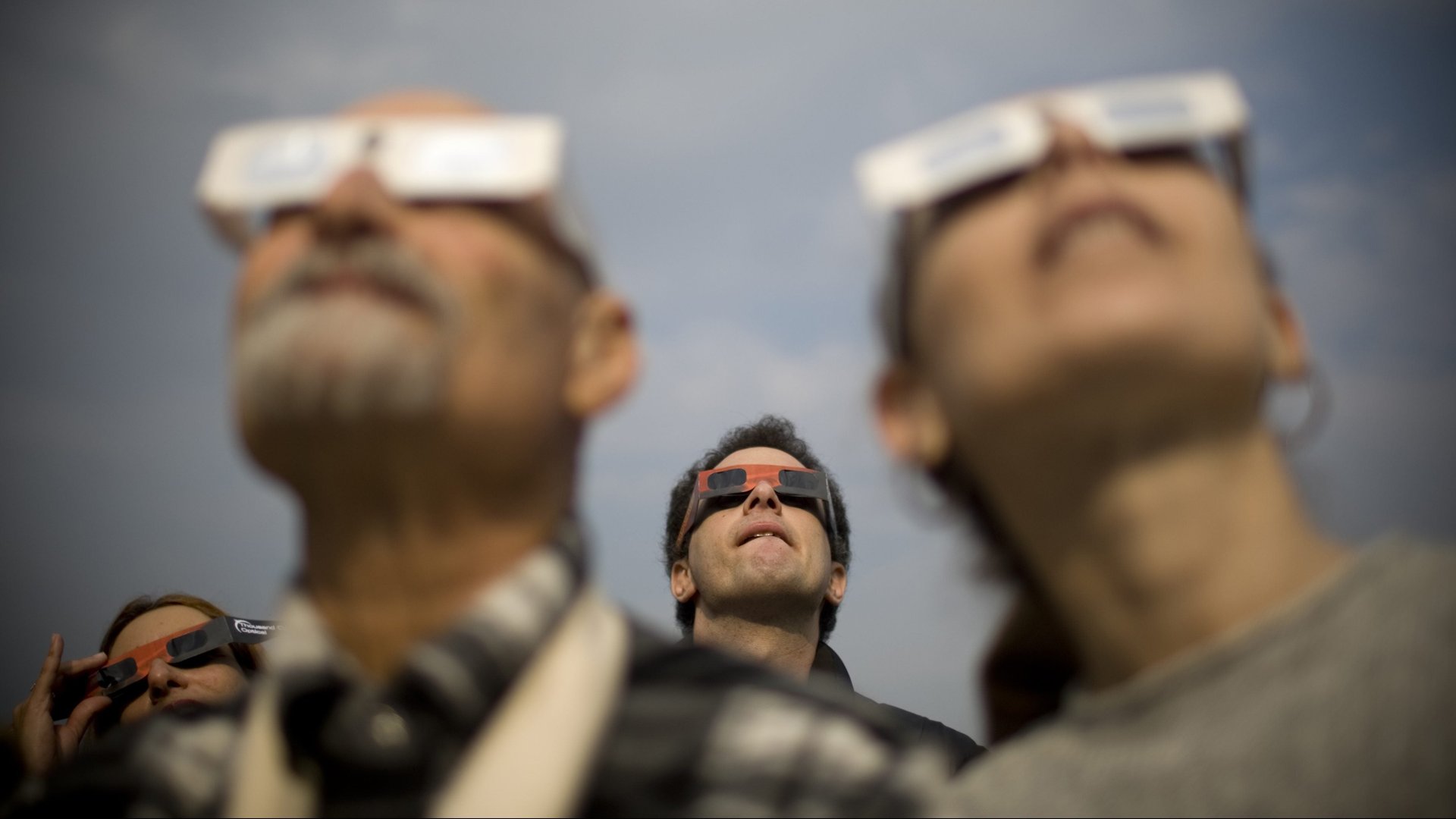Amazon is warning customers and refunding unreliable eclipse glasses sold on its site
We’re nine days from the first total solar eclipse to be seen in America in nearly a century, and eclipse-watchers are frantically organizing travel and equipment to ensure a good view, including protective glasses. But some people who purchased those glasses on Amazon received warnings today from the retailer not to use them.


We’re nine days from the first total solar eclipse to be seen in America in nearly a century, and eclipse-watchers are frantically organizing travel and equipment to ensure a good view, including protective glasses. But some people who purchased those glasses on Amazon received warnings today from the retailer not to use them.
Amazon’s email to customers explains that certain solar eclipse-watching glasses sold on its site have not been proven safe for their purpose, and promises to refund the purchase price. At time of writing, Amazon had not provided a full list of products being refunded, but one of the products being refunded is WEBSUN’s “Direct Sun Viewing Safety Eye Protection Glasses.”
Customers who bought the glasses were notified that they would find the cost refunded to their Amazon accounts. “We recommend that you DO NOT use this product to view the sun or the eclipse,” the company’s email warns.
Hello,
We’re writing to provide you with important safety information about the eclipse products you purchased on Amazon (order […] for Solar Eclipse Glasses CE and ISO Certified 10 Pack by WEBSUN for Direct Sun Viewing Safety Eye Protection Glasses).
To protect your eyes when viewing the sun or an eclipse, NASA and the American Astronomical Society (AAS) advise you to use solar eclipse glasses or other solar filters from recommended manufacturers. Viewing the sun or an eclipse using any other glasses or filters could result in loss of vision or permanent blindness.
Amazon has not received confirmation from the supplier of your order that they sourced the item from a recommended manufacturer. We recommend that you DO NOT use this product to view the sun or the eclipse.
Amazon is applying a balance for the purchase price to Your Account (please allow 7-10 days for this to appear on Your Account). There is no need for you to return the product. You can view your available balance and activity here:
For more information about safely viewing a solar eclipse please see the NASA and AAS websites.
If you purchased this item for someone else, please pass along this information to the recipient.
We hope to see you again soon.
Sincerely,
Customer ServiceAmazon.com
An Amazon spokesperson tells Quartz that the company had “proactively reached out to customers and provided refunds for eclipse glasses that may not comply with industry standards.” “We want customers to buy with confidence anytime they make a purchase on Amazon.com and eclipse glasses sold on Amazon.com are required to comply with the relevant ISO standard.” Amazon’s warning only applies to the glasses that failed to provide certification.
In July, Quartz reported that counterfeit and ineffective “solar eclipse glasses” were flooding Amazon’s marketplace. At the same time, Amazon sent out a letter to sellers of eclipse glasses and products, asking them to provide details of safety and origin, including ISO certification from an accredited lab. However, plenty of glasses had already been sold at that point.
Of the 140 Amazon listings reviewed by Quartz, 119 of 140 claimed to have the proper ISO certification. Some even say they are just as good as the NASA-approved manufacturers, but haven’t gotten approval yet.
Fienberg, of the American Astronomical Society, has been in contact with many companies not yet on the NASA-approved list. “My phone keeps ringing” with companies asking for the NASA stamp of approval, he says. “We started collecting additional paperwork and what do you know—some don’t have complete ISO paperwork.”
Not all glasses marked as compliant with safety standards are genuine products. As Quartz editor Elijah Wolfson found:
All this has made me suspicious about my own glasses. The ones I bought have all the right words printed on them: “meets the Transmission Requirements of ISO 12312-2” they say, before going on to list a slew of other standards allegedly met. Then at the end: “Mfg. by: American Paper Optics.”
But the Amazon listing didn’t actually say American Paper Optics manufactured the lenses; it just showed up with the Tennessee-based company’s stamp on it. I ask Lunt how I could tell if what I had was the real deal or a knock-off, and he tells me to look at the earpieces. There’s a design element that’s been generic among all of cardboard glasses for years (remember those red-and-blue lensed 3D glasses?): the part of the cardboard frame that hooks over the ears has a rounded end. APO recently changed their design to have a more squared-off earpiece.
No surprise, my 10-pack all have rounded ears, the scarlet letter of phoniness.
Those who have purchased special glasses to protect their eyes from solar rays—as well as those who have not!—should check NASA’s indications on how to watch the eclipse safely.